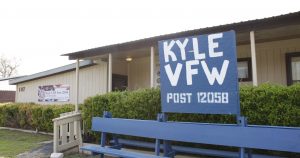By Moses Leos III
For the fourth time in five years, Houston based natural gas company CenterPoint Energy is petitioning member regulatory authorities for an interim rate increase in gas prices.
But for now, Kyle will wait as it reviews CenterPoint’s request to increase prices by roughly $2 per person.
The Kyle City Council handled the company’s latest request on April 21 as part of CenterPoint’s annual rate increase per the Gas Reliability Investment program (GRIP).
Alicia Dixon, spokesperson for CenterPoint Energy, said GRIP allows companies such as CenterPoint to “recover costs that relate to capital investment made in distribution without filing a full rate case.”
CenterPoint’s latest interim adjustment will see an increase of $2.30 per customer. Currently, CenterPoint customers in the South Texas region, which include Kyle and Buda, pay a charge of $17.89; the increase will see that number rise to $20.19.
According to Dixon, interim rate increases made under GRIP are done to defray a substantial increase in full rate cases.
She said full rate cases, which must be done every five-and-a-half years after implementation of a interim adjustment, can be “costly and lengthy.”
“The ability for a utility to file for an interim adjustment with regulatory authority and not have a lag time (between adjustments) is good,” Dixon said. “It allows for smaller increases rather than large increases at once.”
The last full rate case involving the South Texas Division, which includes Buda, Kyle and San Marcos, was made in 2010. GRIP interim adjustments have been made every year from 2012 to 2014.
Primary reasons for GRIP adjustments are to pay for maintenance and upkeep of new infrastructure. According to Texas Utility Code section 104.301, GRIPs can only be used to pay for newly invested capital that isn’t included in existing rates.
Dixon said CenterPoint has placed new infrastructure to meet the rapid growth along the IH-35 corridor.
“It allows a utility to recover its investment and it keeps (infrastructure) healthy and systems maintained,” Dixon said.
But for the moment, Kyle City Council chose to wait on making a decision on CenterPoint’s rate increase.
According to state statute, utility companies using a GRIP must give cities and other regulatory authorities 60 days notice prior to implementing a rate increase.
In turn, regulatory authorities have the option to delay the rate increase by no more than 45 days
According to city spokesperson Jerry Hendrix, the delay is a standard move made by cities to review any inconsistencies in the application.
Rules require utility companies to submit information on previous rate adjustments. Regulatory authorities also take into account its customers and cost concerns for customers.
“Those who have limited means, a two-dollar increase can mean a lot,” he said.
Hendrix said in the past, the city hasn’t encountered discrepancies that have caused a change in rate increase.
“If we were to challenge, it would be like challenging a full rate case; it’s a long and expensive process,” Hendrix said. “We would not prevail unless it was an egregious error.”







